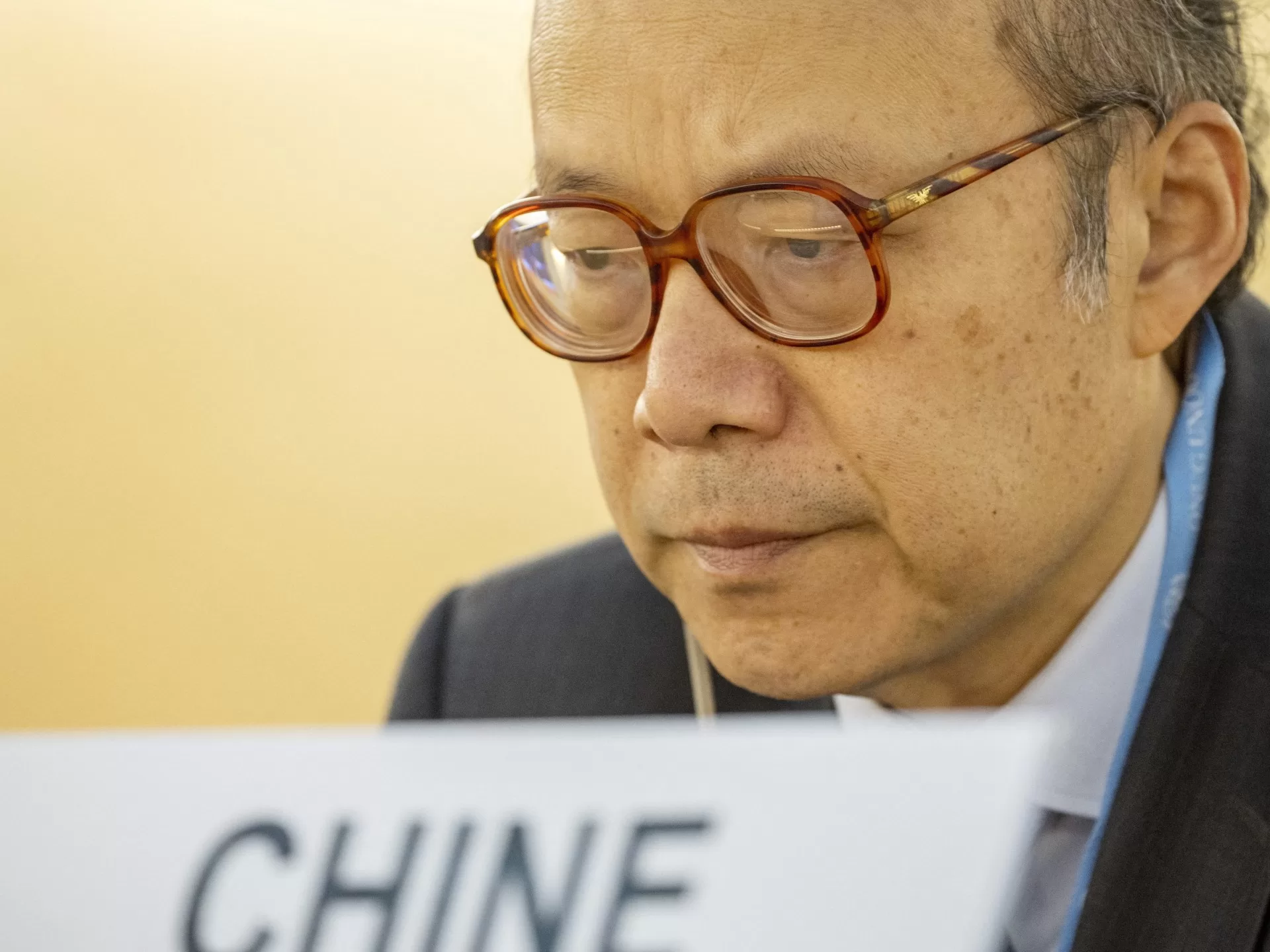Western states slammed Beijing’s actions in Xinjiang and Hong Kong, but others said they saw progress.
The review meeting on Tuesday saw Western countries chide Beijing for its treatment of Xinjiang Uighurs and restrictions in Hong Kong. Meanwhile, non-Western states agreed with Chinese claims that it has made progress in a number of areas.
The review is the first since the UN’s top rights official released a report in 2022 saying the detention of Uighurs and other Muslims in the Xinjiang region could amount to crimes against humanity.
Beijing has denied these abuses are taking place. China’s diplomatic mission insisted that it had made strides since its last UN review in 2018, lifting nearly 100 million people out of poverty.
“We embarked on a path of human rights development that is in keeping with the trend of the times and appropriate to China’s national conditions and scored historic achievements in this process,” said Ambassador Chen Xu.
Chen also said that China’s citizens engage in “democratic elections,” and that freedom of religious belief is safeguarded.
Eric Chan, Hong Kong’s chief secretary, praised the security law imposed on the island.
“The days of social disturbance and fear are now over. Stability as well as law and order has been restored and our city is back on track,” he said.
Split
According to reports, China lobbied non-Western countries for support ahead of the meeting, and many offered Beijing their backing.
Bolivia commended China’s efforts to reduce deforestation. Burundi said it had improved access to healthcare.
Iran praised China’s “national action plan for human rights”. Ethiopia and Cameroon were also offered positive opinions.
However, Western states roundly slammed the eastern giant.
Germany, the Czech Republic and Japan cited violations in Xinjiang and Tibet. Canada criticised China’s national security law in Hong Kong.
Amnesty International said the meeting had been turned into a “fig leaf” for China by countries seeking closer ties with Beijing.
A protest was planned outside the UN building with Tibetan, Uighur and Hong Kong activists and Chinese dissidents.
The review process involves all UN member states and puts their human rights records under scrutiny by other countries roughly every five years.
